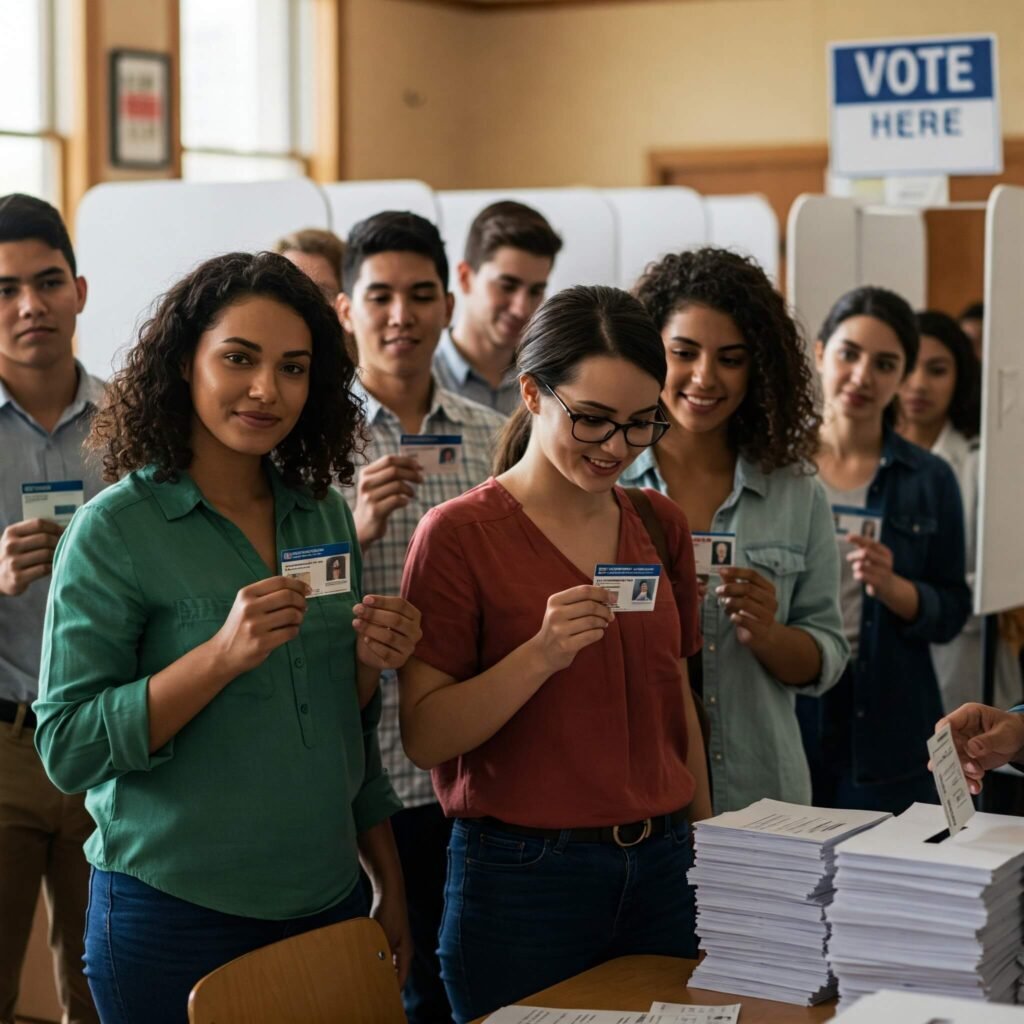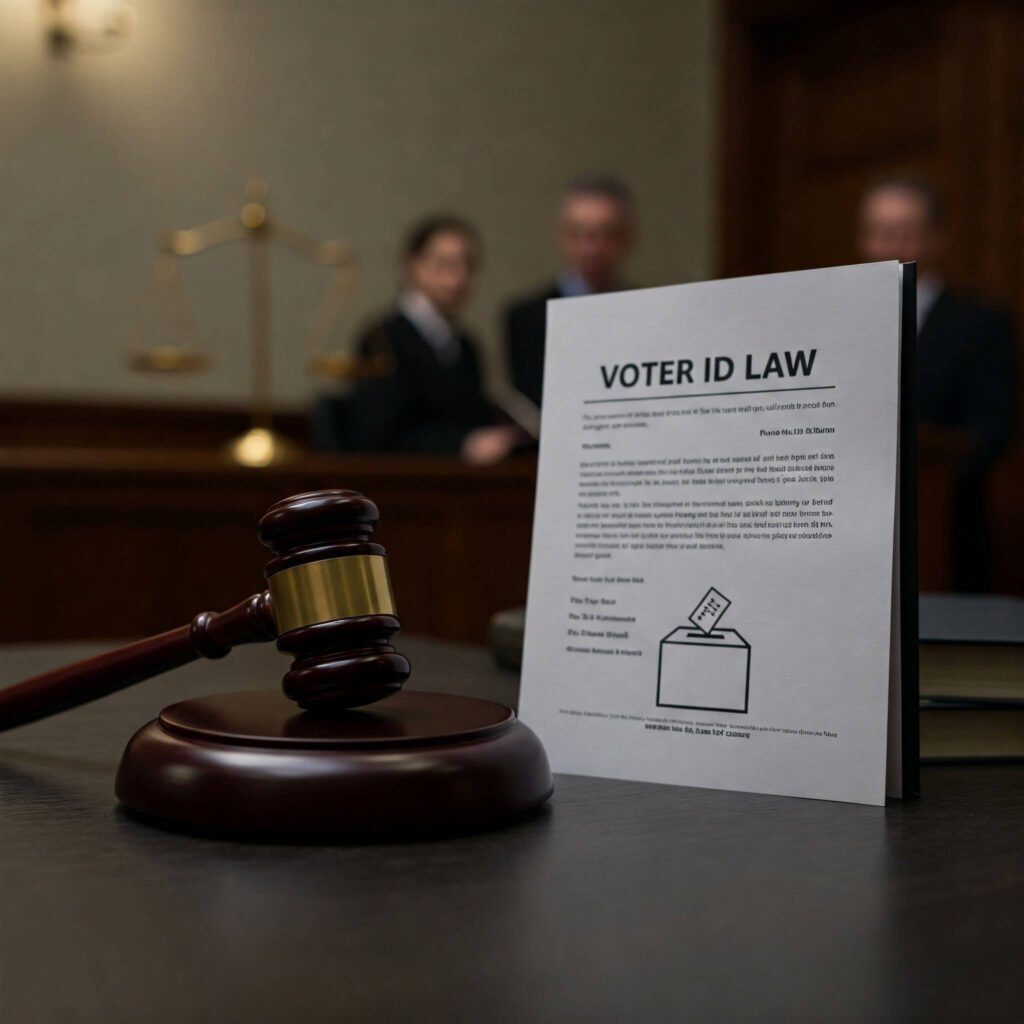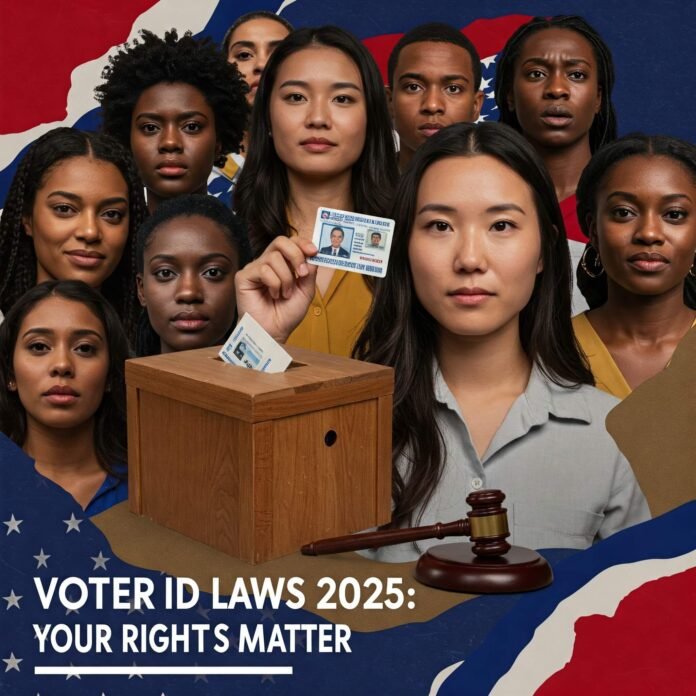In 2025, voter ID laws are sparking heated debates across the United States, with concerns about whether they protect elections or threaten voting rights. As states roll out new regulations, many Americans are left wondering: Are my voting rights at risk? This blog dives into the latest updates on voter ID laws, their implications, and actionable steps to ensure your voice is heard at the ballot box. With clear explanations, real-world examples, and practical tips, we’ll help you navigate this critical issue.
Why Voter ID Laws in 2025 Matter
Voter ID laws require individuals to present identification before casting a ballot. Proponents argue these laws safeguard election integrity, while critics warn they may disproportionately affect marginalized groups, potentially restricting voting rights. In 2025, new legislation and court rulings are reshaping how these laws are implemented, making it essential to understand their impact.
According to the National Conference of State Legislatures (NCSL), 36 states now have some form of voter ID requirement, with 18 enforcing strict photo ID rules. These changes have raised questions about accessibility and fairness, especially for low-income, elderly, and minority voters.

Key Changes to Voter ID Laws in 2025
The landscape of voter ID laws is evolving rapidly. Here are the most significant updates you need to know:
Stricter Photo ID Requirements
Several states, including Texas and Georgia, have tightened their photo ID rules. For example, Texas now requires a state-issued photo ID for both in-person and mail-in voting, rejecting student IDs or out-of-state licenses. This has sparked concerns about accessibility for transient populations, such as college students.
Expanded ID Options in Some States
On the flip side, states like Minnesota and Nevada have broadened acceptable ID types, including utility bills or tribal IDs, to make voting more accessible. These changes aim to balance security with inclusivity but face criticism from those who argue they weaken safeguards.
Legal Challenges and Court Rulings
In 2025, federal and state courts are reviewing voter ID laws, with cases in North Carolina and Wisconsin challenging strict requirements. These rulings could set precedents for how voter ID laws are enforced nationwide, impacting millions of voters.

Are Your Voting Rights at Risk in 2025?
Voter ID laws can create barriers for certain groups, raising concerns about voting rights. Here’s how these laws might affect you:
- Low-Income Voters: Obtaining a photo ID often involves costs (e.g., fees for a driver’s license orsome text or birth certificate), which can be prohibitive for those with limited resources.
- Elderly Voters: Older voters may lack current IDs, especially if they no longer drive or have outdated documents.
- Minority Communities: Studies, like one from the Brennan Center for Justice, show that Black and Hispanic voters are less likely to have access to acceptable IDs, potentially disenfranchising these groups.
For example, in Georgia, a 2023 study found that 25% of Black voters lacked a valid photo ID compared to 15% of white voters, highlighting disparities that could worsen with stricter laws.
How Voter ID Laws Impact Election Integrity
Supporters of voter ID laws argue they prevent fraud and boost public confidence in elections. However, evidence of widespread voter fraud is scarce. A 2014 study by Loyola Law School found only 31 credible instances of voter impersonation out of over 1 billion votes cast. Critics argue that the focus on ID laws diverts attention from more pressing issues, like cybersecurity for voting machines.

3 Ways to Protect Your Voting Rights in 2025
Don’t let voter ID laws catch you off guard. Here are three actionable steps to ensure you’re ready to vote:
- Check Your State’s ID Requirements: Visit your state’s election website (e.g., vote.gov) to confirm what IDs are accepted. Requirements vary widely, so don’t assume your ID will work.
- Get a Valid ID Early: If you need a new ID, start the process now. Many states offer free voter IDs—contact your local DMV or election office for details.
- Spread Awareness: Share information about voter ID laws with your community, especially with those who may face barriers. Local organizations, like the League of Women Voters, often provide resources and support.
The Future of Voter ID Laws in 2025 and Beyond
As we move deeper into 2025, voter ID laws will remain a contentious issue. Proposed federal legislation, like the John R. Lewis Voting Rights Advancement Act, aims to restore protections against discriminatory voting practices, but its passage is uncertain. Meanwhile, advocacy groups are pushing for policies that balance security with accessibility, such as automatic voter registration or expanded ID options.
Staying informed is your best defense. Follow trusted sources like the Brennan Center for Justice or NCSL for updates on voter ID laws and their impact on voting rights.
Final Thoughts: Your Vote, Your Voice
Voter ID laws in 2025 are a double-edged sword—designed to protect elections but potentially risking voting rights for millions. By understanding these laws, securing a valid ID, and advocating for fair policies, you can ensure your voice is heard. Don’t let barriers silence you at the ballot box. Check your state’s requirements today, and let’s make 2025 a year of empowered voting.

